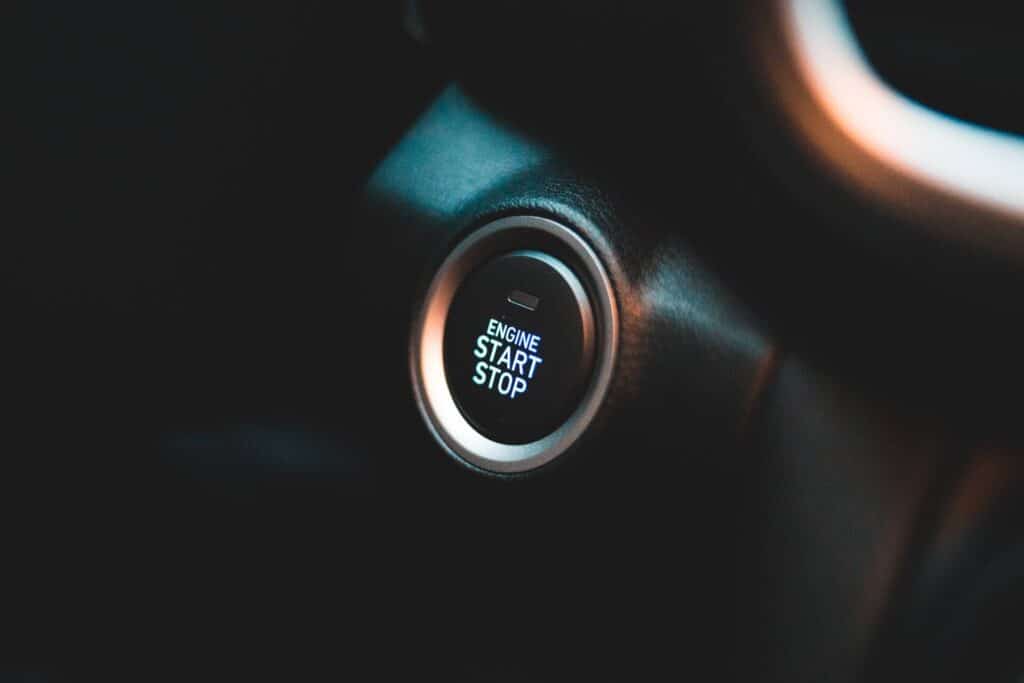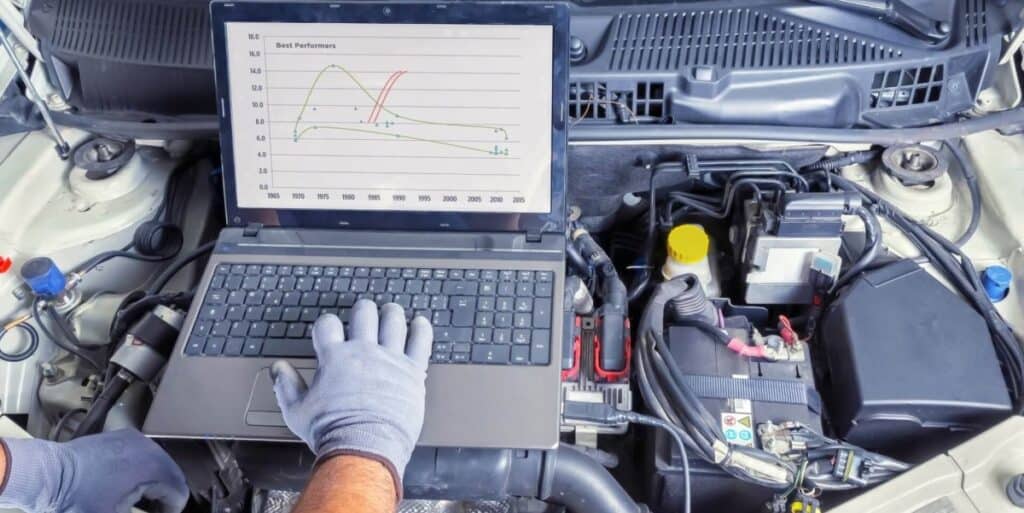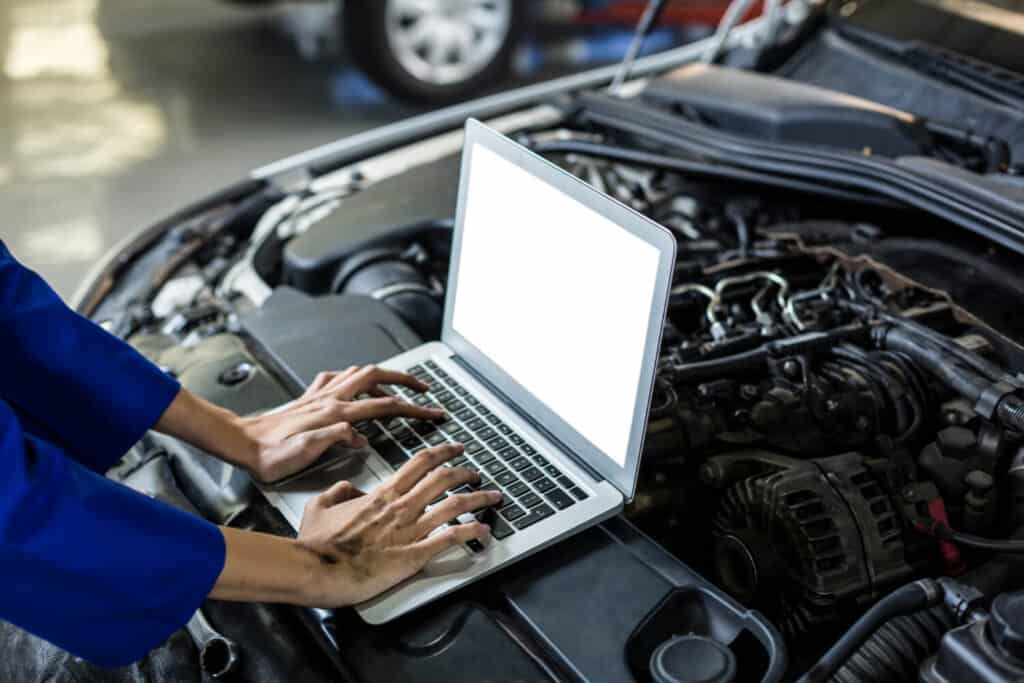Have you ever experienced trouble starting your car, only to find out that a bad sensor was the culprit? If so, you’re not alone. Many car owners are unaware of the role sensors play in their vehicle’s starting system. In this article, we’ll discuss how a bad sensor can prevent your car from starting, the different types of sensors found in a car, and how to diagnose and fix faulty sensors.

What are the different types of sensors in a car?
Your car’s engine is a complex system that relies on various sensors to function properly. These sensors provide crucial information to the engine control unit, which then adjusts the engine’s operation based on the data received. Here are some of the most common types of sensors found in a car’s engine and their role in the engine’s operation:
1. Crankshaft position sensor: The crankshaft position sensor measures the position and rotation speed of the crankshaft. This data is then used to control the fuel injection and ignition systems, ensuring that the engine runs smoothly and efficiently.
2. Camshaft position sensor: The camshaft position sensor measures the position and rotation speed of the camshaft. This information is used to control the fuel injection and ignition systems, as well as the valve timing. Accurate valve timing is essential for optimal engine performance and fuel efficiency.
3. Oxygen sensor: The oxygen sensor measures the amount of oxygen in the exhaust system. This information is used to adjust the air-to-fuel ratio, ensuring that the engine is running at peak efficiency. An inaccurate air-to-fuel ratio can cause poor fuel economy and increased emissions.
4. Mass air flow sensor: The mass air flow sensor measures the amount of air entering the engine. This information is used to adjust the air-to-fuel ratio and the ignition timing. Accurate air flow measurements are essential for optimal engine performance and fuel efficiency.
5. Throttle position sensor: The throttle position sensor measures the position of the throttle valve. This data is used to adjust the air-to-fuel ratio and the ignition timing, ensuring that the engine runs smoothly and efficiently.
How can a bad sensor affect the car’s ability to start?
A bad sensor in a car’s engine can significantly impact the vehicle’s ability to start. If the crankshaft position sensor or camshaft position sensor is faulty, the engine control unit may not receive accurate information about the position and rotation speed of the engine’s internal components. This can result in issues with the ignition, causing the engine to crank but not start. Alternatively, a bad mass air flow sensor or oxygen sensor can cause issues with the fuel delivery, resulting in the engine stalling or not starting at all. A faulty throttle position sensor can also cause issues with the air-to-fuel ratio, causing the engine to start roughly or not at all.
The symptoms of a bad sensor can vary depending on the type of sensor and the severity of the problem. However, some common signs of a faulty sensor include the check engine light coming on, poor fuel economy, and engine misfires. To avoid further damage to the engine or other components, it’s essential to identify and fix any faulty sensors as soon as possible. Consulting a certified mechanic is recommended to diagnose the issue accurately and provide a solution that meets the manufacturer’s specifications.

How to diagnose a bad sensor in your car?
Sensors are critical components of modern vehicles, providing valuable data to the onboard computer to ensure efficient and safe operation. However, like any other mechanical part, sensors can sometimes fail, leading to a range of problems that can affect vehicle performance. If you suspect a bad sensor in your car, there are several steps you can take to diagnose the issue.
First, you can use a diagnostic scanner to read the error codes stored in your car’s onboard computer. These codes can provide valuable information about the specific sensor that is malfunctioning, allowing you to replace or repair it promptly. Additionally, you can perform a visual inspection of the sensors and their wiring connections to look for any signs of damage, corrosion, or other issues. Finally, you can take your vehicle to a professional mechanic to perform a more thorough diagnosis, including physical tests and sensor replacement if necessary. By identifying and addressing bad sensors promptly, you can ensure the optimal performance of your vehicle and prevent potential safety hazards on the road.
How to fix a bad sensor in your car?
Once a faulty sensor has been identified, it’s essential to fix or replace it as soon as possible. The repair or replacement process will depend on the type of sensor and the severity of the problem. In most cases, the cost and labor involved can vary significantly. A certified mechanic can provide an accurate estimate for the repair or replacement of a faulty sensor.
How to prevent a bad sensor from causing starting issues?
Regular Maintenance
Regular maintenance is crucial for identifying and addressing potential issues before they escalate into more significant problems. Scheduled maintenance can help diagnose and replace faulty sensors before they cause starting issues. Make sure to follow the manufacturer’s recommended maintenance schedule and have your car inspected by a professional mechanic regularly.
Check the Battery
A weak or dead battery can also cause starting issues, leading some to suspect a bad sensor. Be sure to check your battery regularly and replace it if it shows signs of wear or age. Keeping your battery charged and in good condition can prevent starting issues caused by a lack of power.
Keep Sensors Clean
Sensors can sometimes become dirty or clogged, leading to starting issues. Keeping sensors clean and free of debris can prevent these issues. Be sure to check your sensors regularly and clean them as needed.
Replace Sensors When Necessary
Over time, sensors can wear out or become damaged, leading to starting issues. If you notice any signs of sensor failure or starting issues, it’s essential to have the sensor replaced promptly. A professional mechanic can diagnose the issue and replace the sensor as needed.

Conclusion
In conclusion, a bad sensor can indeed prevent your car from starting, and it’s essential to identify and fix the problem as soon as possible. By understanding the different types of sensors in a car, their role in the engine’s operation, and the signs of a faulty sensor, you can avoid costly repairs and potential damage to your vehicle. Remember to consult a certified mechanic for any repairs related to your car’s electrical or mechanical components. With proper maintenance and care, you can ensure that your car’s sensors remain in top condition, preventing any issues that may cause starting problems.
